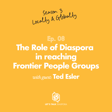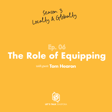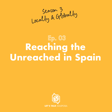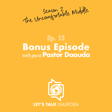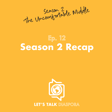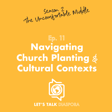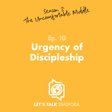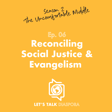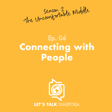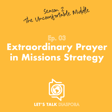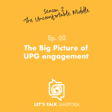
The Role of Trauma Healing in Discipling the Diaspora
Rebecca and Bud dive into a conversation with trauma care experts Steve and Jason, exploring the nuances of trauma-informed care, trauma healing, and trauma sensitivity. They share personal journeys, intertwining experiences of trauma care in diverse contexts, from war-torn regions to diaspora communities. The conversation delves into the definitions of trauma, emphasizing the perception of events and the importance of addressing both trauma A (presence of bad events) and trauma B (absence of good experiences). With statistics highlighting the prevalence of trauma, especially in refugee populations, the conversation shifts to the intersection of trauma sensitivity with evangelism and disciple making. Jason and Steve stress the significance of integrating trauma healing with discipleship, emphasizing the need for a reverent witness to others' pain. Practical insights are shared, including the importance of building trust, attuned listening, and asking open-ended questions to facilitate healing conversations.
Further Resources:
https://crisiscareinternational.org/
https://www.traumahealingbasics.org/
Steve's Email: mosesmusings@gmail.com
Jason's Email: jasonadamsbrown@globalgates.info
Quotables:
Discounting our own pain is a sure sign that we cannot be a reverent witness to the pain of others. - Kathleen O’Connor
Trauma is perhaps the greatest mission field of the 21st century. - Dr. Diane Langberg
70% of adults in the U.S. have experienced some type of traumatic event at least once in their lives.
National Council for Behavioral Health
39% of refugees have post-traumatic stress disorder vs. 1% of the general population.
Seeking Refuge: On the Shores of the Global Refugee Crisis

